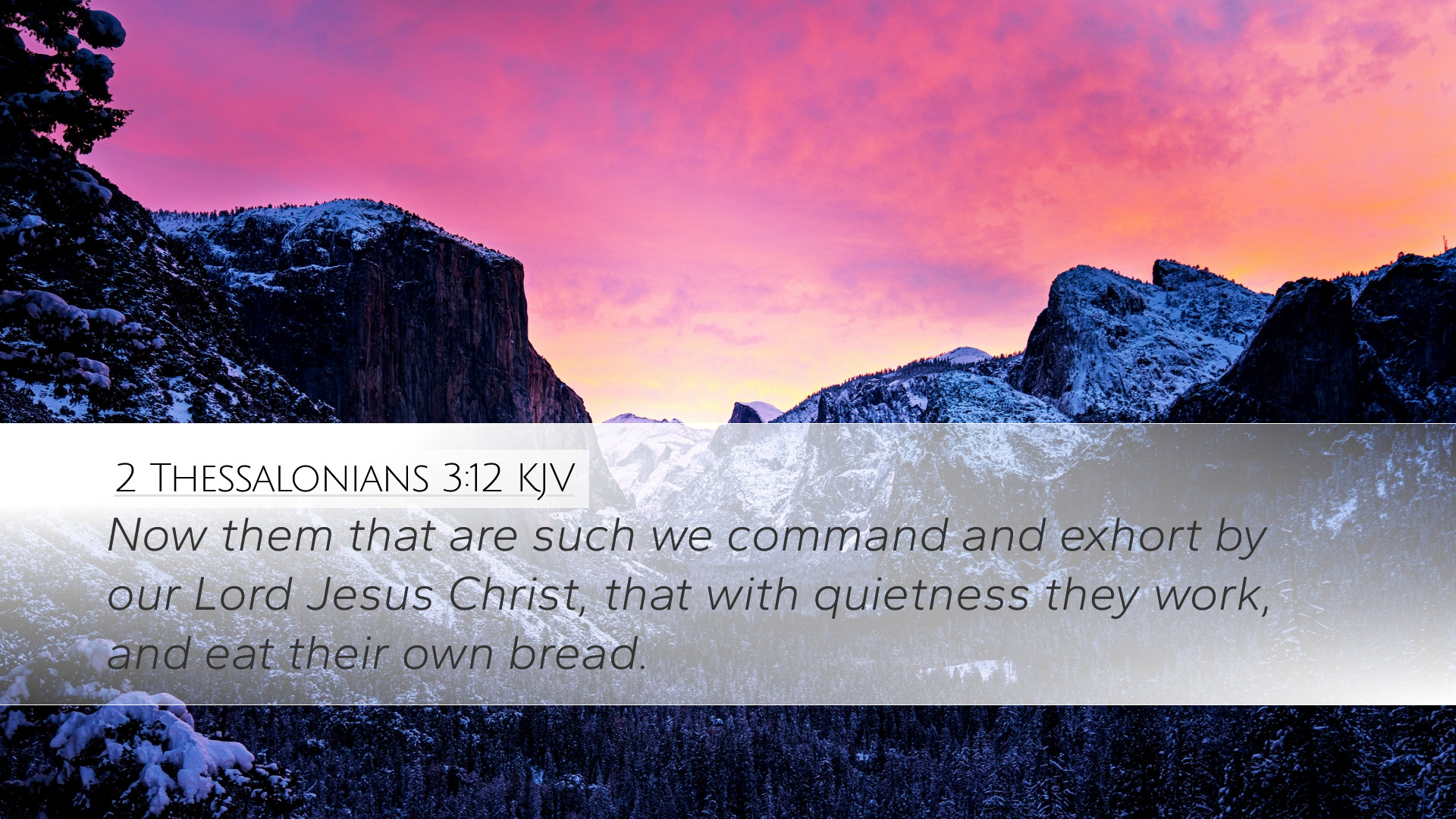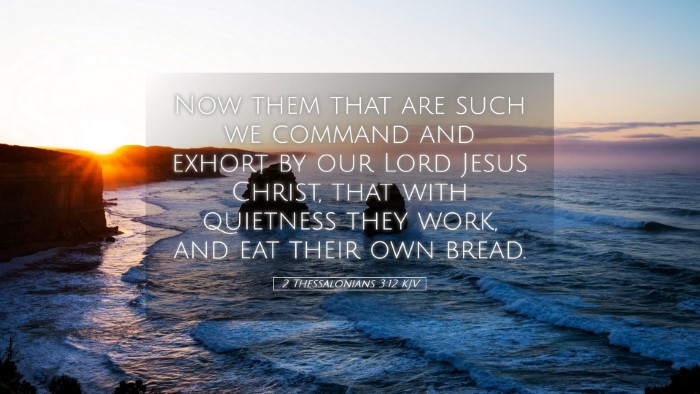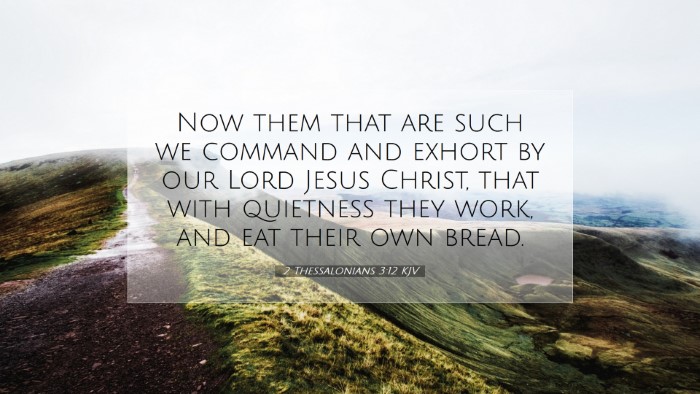Exegesis and Commentary on 2 Thessalonians 3:12
In 2 Thessalonians 3:12, the Apostle Paul addresses the issue of idleness among the believers in Thessalonica. This verse states:
"Now them that are such we command and exhort by our Lord Jesus Christ, that with quietness they work, and eat their own bread." (2 Thessalonians 3:12, KJV)
Contextual Background
This verse falls within the concluding chapter of 2 Thessalonians, where Paul offers practical advice concerning idleness and diligence. The early church faced challenges related to eschatological beliefs, notably the misunderstanding of Christ's return, which had led some members to neglect their daily responsibilities. Paul emphasizes the importance of work as a means to sustain oneself and contribute to the community.
Verse Analysis
Paul begins with a directive to those who are idle, describing them as "such." This categorization indicates a concern for particular individuals disrupting the harmony of the community.
Command and Exhortation
Paul employs the terms "command" and "exhort," which reveals the seriousness of the matter. The dual terminology suggests:
- Authority: Paul speaks with apostolic authority, emphasizing this isn't merely a suggestion but a command.
- Encouragement: Alongside commanding, he encourages the believers to adopt a spirit of diligence and accountability.
The Lordship of Christ
The phrase "by our Lord Jesus Christ" signifies the weight of the command. Paul invokes the authority of Christ to underline the moral imperative of working. This is not just practical advice; it reflects a theological commitment to living under the Lordship of Christ in all aspects of life.
Theological Reflections
In the cultural context of the early church, the concept of idleness was not merely a personal failing; it disrupted the community ethos. The expectation of mutual support was significant, where each member contributed to the wellbeing of the whole.
The Call to Work
Paul’s exhortation to "work quietly" indicates the need for humility and diligence. It contrasts with the chaotic lifestyle that idleness engenders. This statement serves multiple purposes:
- Self-Reliance: Encourages believers to depend on their own efforts rather than relying on the community for their sustenance.
- Modesty and Respect: Working quietly avoids unnecessary attention and promotes a lifestyle of humility.
Sustaining Community Through Work
Eating "their own bread" emphasizes personal responsibility. This phrase metaphorically illustrates the rewards of hard work and the importance of contributing to one’s household and church community. As Albert Barnes notes, true believers should desire to be productive members of society.
Insights from Public Domain Commentaries
Matthew Henry’s Viewpoint
Matthew Henry discusses the implications of idleness within the church. He notes that it is detrimental not only to the individual's spiritual life but also to the collective health of the church. He emphasizes that Christians have a duty to labor, as laziness can lead to a host of moral and spiritual issues. Henry points out that the apostolic command provides a framework for understanding work as part of a Christian’s vocation.
Adam Clarke’s Insights
Adam Clarke elaborates on the cultural backdrop of this passage, highlighting that the Thessalonian believers might have been awaiting Christ's imminent return, leading them to abandon their daily responsibilities. Clarke underlines the practicality of Paul’s advice, reinforcing that work and personal accountability are vital in the life of a Christian. He also stresses the notion that working quietly allows for the witness of Christ to shine more brightly through the believer's actions.
Albert Barnes’ Explanation
Albert Barnes focuses on the imperative nature of Paul’s message, emphasizing that a genuinely Christian life should be characterized by industriousness. Barnes articulates that Paul does not just condemn idleness but actively encourages productivity, noting that a lazy disposition does not reflect a sincere faith.
Practical Implications for Today’s Church
2 Thessalonians 3:12 remains pertinent for contemporary believers. Idleness today may manifest as disengagement from community and responsibility. The call to work reflects a broader principle of stewardship:
- Community Engagement: Fostering connections through service and personal contribution.
- Holistic Faith: Understanding faith as encompassing all areas of life, including work.
- Personal Accountability: Encouraging individuals to take ownership of their responsibilities within the body of Christ.
Conclusion
In sum, 2 Thessalonians 3:12 encompasses deep teaching about the nature of Christian conduct and community living. With insights gleaned from centuries of biblical scholarship, this passage challenges both theological study and practical living, urging the modern church to renew its commitment to diligence and accountability. Through the lens of historical context and commentary, believers are reminded that their contributions to the community reflect their faith in action.


